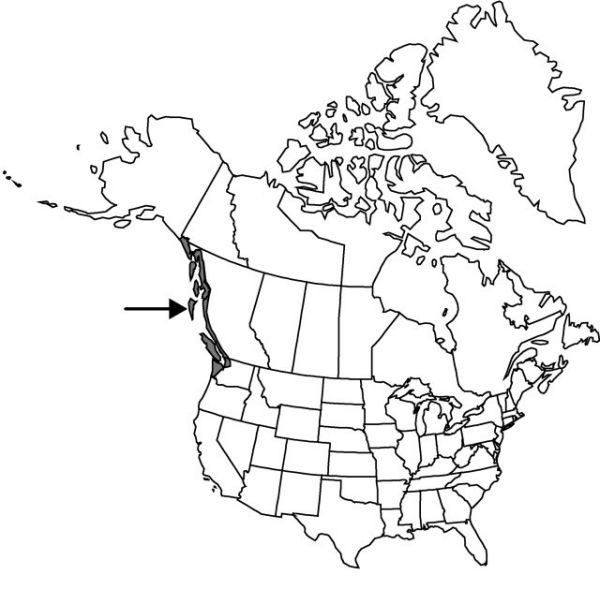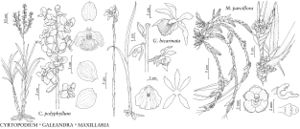Sisyrinchium littorale
Pittonia 4: 33. 1899.
Herbs, perennial, slightly cespitose, dark olive when dry, to 4.2 dm, not glaucous; rhizomes scarcely discernable. Stems simple, obviously winged, 2.2–3.5 mm wide, glabrous, margins denticulate, similar in color and texture to stem body. Leaf blades glabrous, bases not persistent in fibrous tufts. Inflorescences borne singly; spathes green, glabrous, keels entire or denticulate; outer 36–58 mm, 6–39 mm longer than inner, tapering evenly towards apex, margins basally connate 4.5–7 mm; inner with keel evenly curved, hyaline margins 0.2–0.5 mm wide, apex acute, ending 0.2–2 mm proximal to green apex. Flowers: tepals light blue to usually deep bluish violet, bases yellow; outer tepals 11–16 mm, apex rounded to slightly truncate, aristate; filaments connate ± entirely, stipitate-glandular basally; ovary similar in color to foliage. Capsules beige to dark brown, ± globose, 6.2–8.1 mm; pedicel erect to ascending. Seeds globose to obconic, lacking obvious depression, 1.2–1.7 mm, rugulose. 2n = 96.
Phenology: Flowering spring–mid summer.
Habitat: Moist, sandy or grassy areas near coast, interdunal depressions, edges of streams and lakes
Elevation: 0–300 m
Distribution

B.C., Alaska, Wash.
Discussion
Populations of Sisyrinchium littorale in coastal Washington and on Vancouver Island, British Columbia, intergrade with S. idahoense var. segetum. Sisyrinchium littorale, however, has larger capsules and wider stems and leaves.
Selected References
None.
